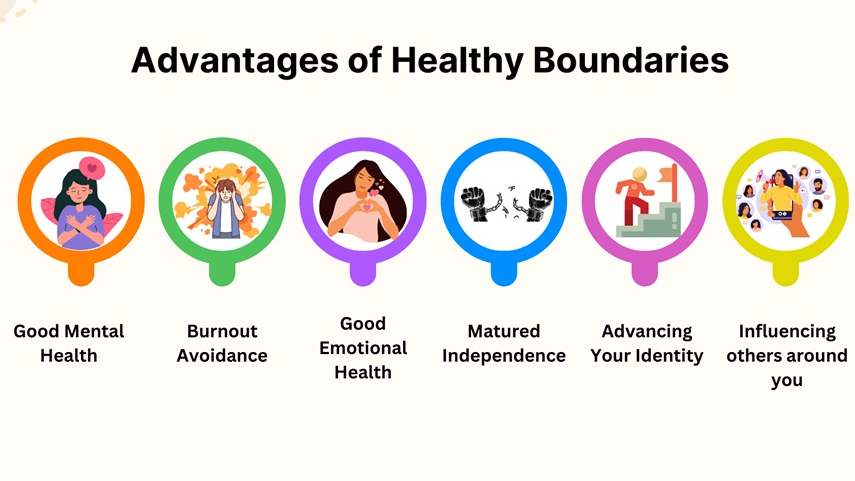How To Stop Being A People Pleaser? | Full Guide
Are you tired of being a people pleaser? You must value yourself over fulfilling other people’s needs and neglecting yours. There’s no harm in saying “no” to someone or something that demands more than you can offer. Creating boundaries is an important step toward preserving your mental health. Ensure you have the energy and time to satisfy your own needs first.
Having a kind personality is a good trait but going too far to please everyone and saying “yes” to everything can leave you emotionally drained, continuously stressed and anxious.
In this article, we will discuss the symptoms of people pleasers and the psychological reasons why and how you need to stop being a people pleaser.
What is a People Pleaser?
A people pleaser is someone who pleases everyone and puts other’s needs on the top to make everyone happy often neglecting their needs/happiness. These people usually sacrifice themselves for others and hurt their self-esteem.
Traits of a People Pleaser
- They usually say “yes” to everyone and everything.
- They always want to make everyone happy.
- They don’t set any borderlines.
- They agree to do things they don’t even like to do.
- They set high expectations.
- They want people to like them.
- They neglect their own need to fulfil others.
- They will even do the hardest work to not let anyone down.
- They even take the blame for others.
- They agree with the people even when they don’t want to.
- They are always ready to take responsibility for other’s work.
How to Stop Being a People Pleaser?
It’s not easy to stop pleasing people, you need to constantly work on changing your behaviour and attitude towards others to save your mental health. Here are some psychological tips to stop being a people pleaser.
1. Normalize saying “No”
You should learn to say “No” to people who demand much more than your capability and limits. Don’t set high expectations for people in their mind that you will do anything that they’ll say. Normalize saying “no” to save your mental health and prioritize your work first.
For Example:
If your classmate insists you help her complete her assignment but you are already stuck on yours then you can excuse her by saying “I’m sorry I am unable to help you out, cuz my own assignment is uncomplete”
2. Set Healthy Boundaries

You have to set limits for your mental well-being and make people in your surroundings aware of your boundaries.
- Communicate those boundaries of what you are willing and not willing to do.
- Let people know that your time is valuable.
- Show them your worth and make it clear that you are not someone who will do anything anyone wants you to do.
- Clear them that you have your values and rules and that must be respected.
For Example:
If you don’t take work calls at a certain time (night) then you let them know that you are unable after working hours (night time)
3. Stop Giving Excuses

Stop making excuses that you can’t do whatever work if you don’t feel like doing it. Just be clear that you don’t want to do it. It might be uncomfortable at the start, but when you practice this, you will have more control of your life and be less controlled by other people’s demands. You will be free of whatever you want to do, you won’t be answerable to anyone and just be yourself.
4. Value Your time and effort
When someone asks you for a favour, don’t say “yes” immediately, take some time and think about it. Is it worth your time and are you willing to do it? Realize that, you have a choice. You can not be forced to do something you don’t want to do. Before making a decision, ask yourself:
- Is it worth my time?
- Is this really what I want to do?
- Will I manage it?
- Is the person worth giving my time
- How stressed will I be if I answer, “Yes?”
Research has also shown that even a little pause before making a decision improves decision-making accuracy.
5. Practice Self-Care

Invest your time in taking care of yourself and your needs, you will eventually break the cycle of constantly stressing about other people’s happiness and focus on what’s important.
It’s not your responsibility to please everyone and every time in this way, you will not get mentally drained out and will save your self-worth from being crushed.
6. Respect your point of view
There’s no need to make a place in other people’s hearts by simply agreeing with them on everything they say. People will care for your strong personality and views. Consider whether it is right or wrong in your view, rather than worrying about whether disagreeing will dishearten them. In this way, you will practice to live your life more authentically.
7. Stand For Yourself
You can break the people-pleasing cycle by standing up for yourself. Start listening to what your inner voice is saying, prioritize your mental health don’t let someone demean you.
Take account of your actions and be proud of yourself for letting go of authoritative people from your life. Your life will be less complicated by avoiding all this people-pleasing behaviour and you will feel light and happy.
Conclusion:
If you’re tired of being a people pleaser and sacrificing your happiness for others then you should learn to say “no” and save your self-esteem. You don’t need to be liked by everyone, you don’t need to go too far to make everyone happy and sacrifice your own happiness and mental well-being. Instead, value yourself and that you are also worthy of the love you give others.
Read our blog: Top 5 B2B Social Media Content Ideas for 2024

